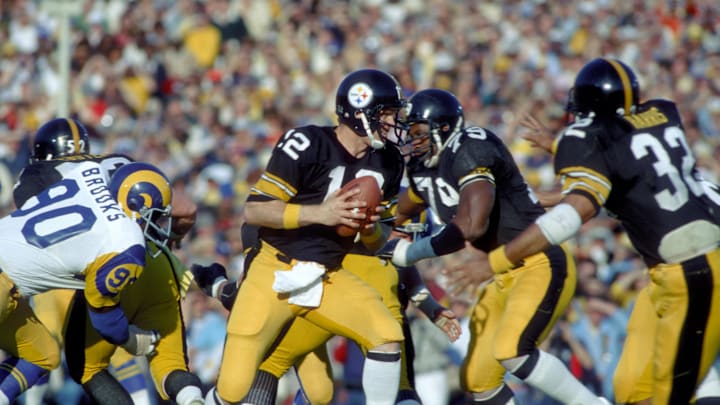The Pittsburgh Steelers have a long and storied history dating back to 1933. As of the time of this particular discussion, that translates to nine decades and change of good, bad, and ugly football. Thankfully for us, the good has outweighed the bad, for the most part.
Although we have a strong winning percentage as a franchise, nearly fifty-four percent to be exact, the decades preceding our first Super Bowl victory in 1974 were rife with consecutive and almost predictable losing seasons. We had some winning seasons in between the losing ones, but not enough.
Before we continue our discussion, and in the event you are not already aware, a few words, if you will, about me. I officially began my Steelers journey in 1978; however, I have vivid memories of watching Super Bowl X with my Dad. I point to 1978 because I consider that the year that I had a modicum of understanding about what was transpiring on the field.
In any event, if we fast forward to the decade of the 1960s, it seemed like the Steelers were in the 'take two steps forward and one step back', to put it mildly. We had two consecutive winning seasons, and that was that. It was time for a change, to say the least.
Pittsburgh Steelers failed trade led to Terry Bradshaw becoming a legend in the Black and Gold
In 1968, Dick Shiner, a player for whom the Steelers traded, arrived in Pittsburgh with what I would assume were high hopes. Why else would you broker a trade with the Cleveland Browns, a division rival? Unfortunately for the Steelers, the trade did not pan out. At least not in the way they planned.
Shiner played two seasons for the Steelers, amassing disappointing numbers, to say the least. In twenty games as the starting quarterback, Shiner's record was three wins, sixteen losses, and one tie. Throughout those two seasons, Shiner threw for slightly under 3,300 yards, 25 touchdowns, and 27 interceptions.
I think it's fair to say that it was pretty clear to the Rooney's and to Chuck Noll, whom they hired to replace a head coach who lasted only three seasons who also had a losing record, that a change at quarterback was not only in order, but it was of paramount importance that the right quarterback was chosen.
In 1970, after enduring a one-win season, the Steelers had the first overall pick in the NFL draft. We could have selected any player, but we chose Terry Bradshaw, 'the blonde bomber' as he was referred to, out of Louisiana Tech. Bradshaw would go on to have a Hall of Fame career, but the early years were not kind to Bradshaw.
In his first two seasons, Bradshaw posted a losing record in the games in which he started. He would never have a losing record for the rest of his career. In his 14-year Steelers career, Bradshaw threw for slightly under 28,000 yards, 212 TDs, and 210 INTs.
For my money, Bradshaw was the best 'big game' Steelers quarterback I have ever watched play. We won four Super Bowls over six years with Bradshaw at the helm of the 'pirate ship'. That is my attempt to pay homage to my dad, who called the Steelers offense Terry and the Pirates.
Frankly, had it not been for injuries to Franco Harris and Rock Bleier in 1977, I firmly believe we would have beaten the then-Oakland Raiders and would have most likely won the Super Bowl that season as well, but alas, it was not meant to be.
For as much as Steelers fans booed Bradshaw when he played poorly, we extoled his praises when he played well. Make no mistake, Bradshaw played well when it mattered. Things changed in 1983 after his injury and subsequent retirement.
Despite having a winning record as a backup, new starter Cliff Stoudt threw 21 interceptions in his 15 starts. Yikes. Steelers fans would suffer for two decades with suspect quarterback play until the arrival of "Big Ben" Roethlisberger in 2004.
We all know what happened next. In 2005, the Steelers would yet again hoist a Lombardi Trophy. The feat would be repeated a few seasons later in 2008. Sadly, we have endured seventeen seasons without being able to claim that we are the best team in the NFL. I don't see this trend changing anytime soon.
While that is a discussion for another time, I will end on this note. If you did not have the privilege of watching Bradshaw play, do yourself a favor and watch some games, particularly playoff games. He was a sight to see.
